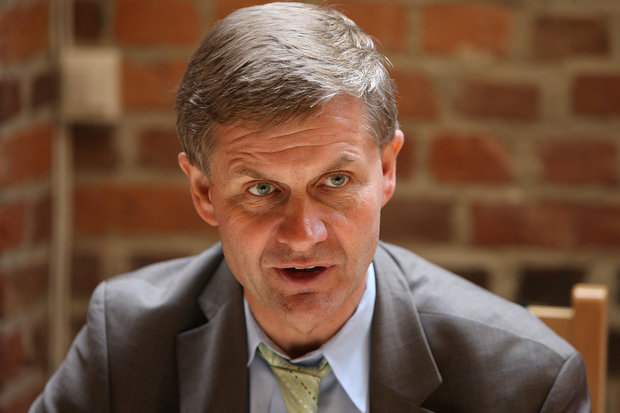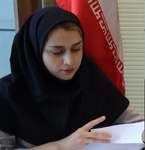International Conference on Sand and Dust Storms kicked off on Monday in Tehran to consider the establishment of a global platform for policy dialogue and coordination on sand and dust storms and to contribute to knowledge-sharing on policies and best practices and capacity building to resolve issues related to dust and sand storms which have arguably become the most pressing environmental problem affecting the Middle East, with major dust storm hotspots in Iraq, Syria and Saudi Arabia exacerbating an otherwise normal phenomenon.
For this purpose, Mehr News conducted an exclusive interview with Executive Director of the United Nations Environment Programme Erik Solheim:
The events like International Conference on Combatting Dust and Sand would pave the way for joint statements, declarations and resolutions which are not normally legally binding. Are there any chances that the outcome of the currently ongoing conference would become a protocol?
It is a very important question. My perspective is that if we look at environmental issues and treaties in the past all these have been built stone upon stone. I'm just back from Japan. This year we will ratify the Minamata protocol [an international treaty designed to protect human health and the environment from anthropogenic emissions and releases of mercury and mercury compounds] which by the way Iran was among the last countries to join the Minamata protocol. It was a long fight for many years to bring them together and now the entire world agreed that we all ban mercury. Another example from the past can be the hole in the ozone layer which is now close to being restored again which, too, took some time. So what we need to do is to build momentum to bring this to higher political level and to get more attention to sand and dust storms.
True, there are different views among the nations in the region. Some of these views are coming from different perspectives on sand and dust storms. In some other areas they have different foreign policies or perspectives on the crisis in the Syria whatever they may be. What we can do from the UN is to provide a platform for dialogue. We believe that the less politicized the dialogue the better and [likewise] the more we can remove other issues and focus on sand and dust storms the better. We [also] believe that the solution should be based on science and the United Nation can provide the best available knowledge when there are disputes.
The main hotspots of sand and dust storms threatening Iran are located mostly in war-stricken areas such as Iraq and Syria who are also attending the event. Are the any hopes that UN Security Council would get involved and resolve the problem?
We must give full support to those who are given the task by the United Nation Security Council to do that and in case of Syria Staffan de Mistura [special] appointed envoy for Syria [crisis] who gets absolute support to [restore] peace and settlement in Syria. Iraq of course is much closer to a success. I think there is no doubt that Daesh will be eradicated from Iraq this year there are just small remaining fight in Mosul and different forces led by the government of Iraq will establish control over the [country]. True there might be terrorist attacks etc. in the future but there is hardly any doubt that in Iraq Daesh will be destroyed and it is very good news. Because all the areas controlled by Daesh both In Syria and Iraq have been hot spots for sand and dust storms and because when a government like the governments of Syria or Iraq have no control over their territories it would be very difficult for them to take the necessary measures.
We share some of the wetlands with other countries and as we witnessed it today there are some differences between some nations such as Iran and Turkey over Tigris and Euphrates. How UN is going to provide necessary protocols to change the current trend and force other governments to cooperate and respect water right of one another?
First of all I think we should consider these disputes as completely normal. I've hardly ever been in any country in the entire world where there are no disputes among those upstream and downstream. It is not just Tigris and Euphrates; there is Nile and also disputes among the states in India. So this is completely normal simply because you, Turkey and Iraq have different perspectives on Tigris and Euphrates.
If the parties want we can offer a mutual platform for resolving this through dialogue and we can offer the best potential mutual science which is established based on the facts to the extent that can be established and that will make it easier to resolve issues. Yet again it is for the sovereign nations to decide whether they want to use the United Nation's help. But we globally have very good experience from the fact that when nations are able to work together on resolving disputes over the rivers through science and dialogue those have positive overall impact on the security situation.
Erik Solheim is a Norwegian diplomat and former politician, and the current Executive Director of the United Nations Environment Programme. He graduated from the University of Oslo in 1980 with a cand.mag. degree after studying history, sociology and political science. In May 2016 Solheim was appointed Executive Director of the United Nations Environment Programme.
Interview by: Lachin Rezaian and Masoud Borbor


























Your Comment